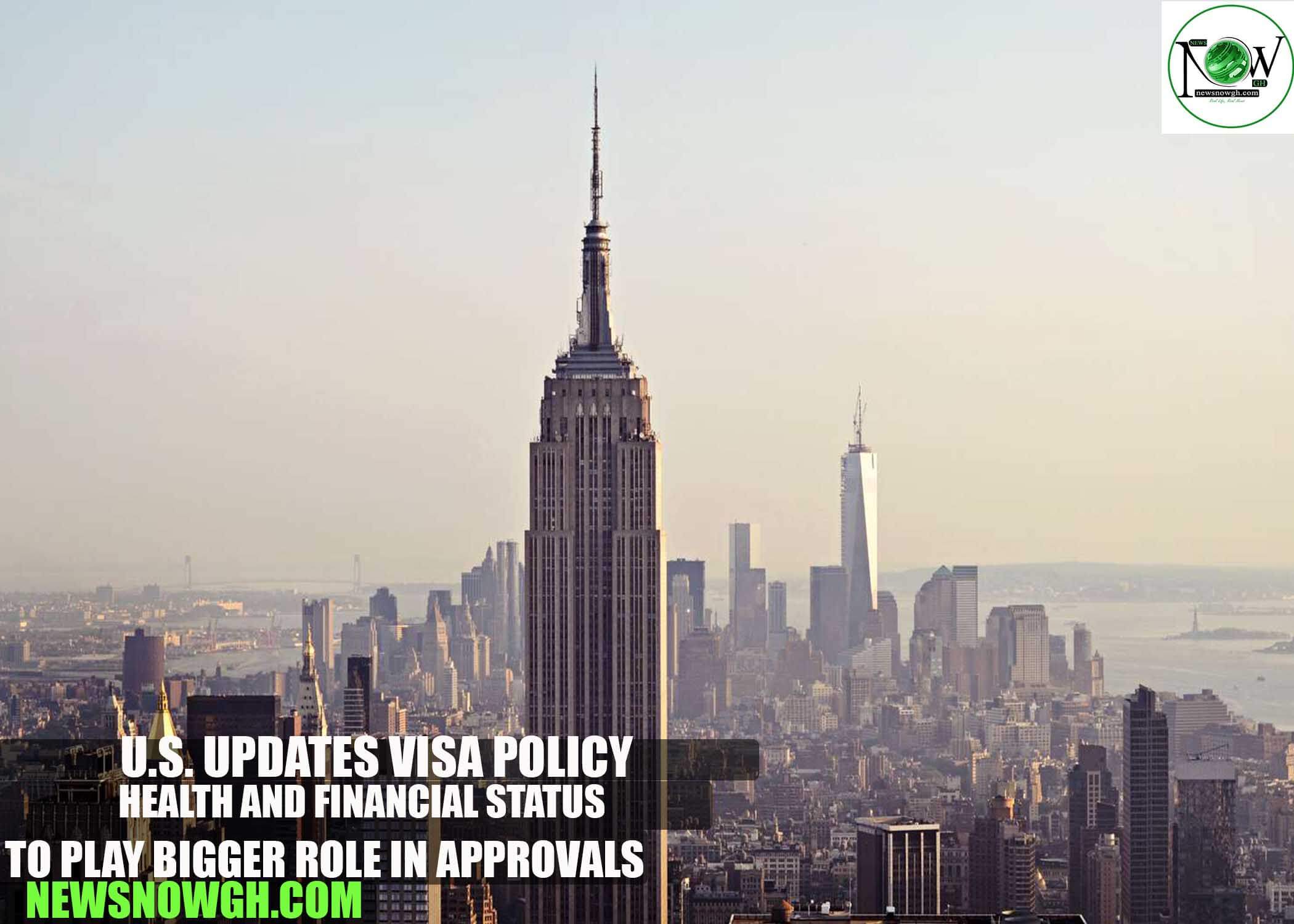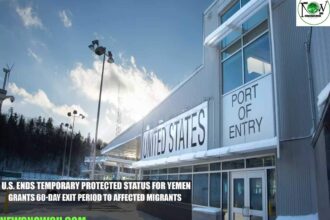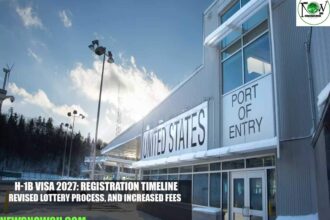U.S. Updates Visa Policy: Health and Financial Status to Play Bigger Role in Approvals
The U.S. has revised its visa policy, placing greater emphasis on health and financial assessments during the approval process. These changes may particularly impact applicants with chronic health issues, making the path to obtaining a visa more challenging.
Foreign nationals seeking to reside in the United States will now encounter stricter health evaluations as part of their visa applications. A recent directive from the Trump administration mandates that U.S. embassies and consulates closely assess an applicant’s health before issuing visas.
Reports indicate that visa officers are now required to evaluate whether chronic conditions, such as diabetes, obesity, and heart disease, may lead applicants to rely on public health services. Those deemed likely to become “public charges” could face visa denial.
Health Considerations in Visa Approvals
Health screenings have always been a component of U.S. visa applications, but the latest guidance urges officers to conduct more thorough assessments. Visa officers will examine both the applicant’s health status and their financial capacity to cover medical expenses independently. This includes inquiries about their ability to finance long-term care without resorting to public assistance.
The directive specifies several health conditions that could influence visa decisions, including:
- Cardiovascular diseases
- Respiratory diseases
- Cancer
- Diabetes
- Mental health issues
- Obesity
These conditions may potentially lead to complications, such as hypertension or asthma. Furthermore, visa officers are instructed to consider the health needs of dependents, including children and elderly parents, as these may impact the applicant’s financial stability and employment prospects.
Stricter Regulations for Students and Workers
The updated policy also introduces new rules for temporary visa holders. Foreign students, exchange visitors, and media representatives will no longer benefit from the flexible “duration of status” system. Instead, their stay in the U.S. will be limited to the duration of their academic programs, typically up to four years, unless they secure an extension from U.S. Citizenship and Immigration Services (USCIS).
Additionally, skilled workers are affected by a recent change requiring certain new H-1B visa applicants to pay an extra one-time fee of approximately $100,000, in addition to standard application fees.
Ongoing Travel Restrictions
Travel bans remain a significant element of the administration’s immigration approach. Several countries remain subject to full or partial visa restrictions due to security concerns, affecting both immigrant and non-immigrant visa categories.
Meanwhile, China is taking a different approach by streamlining its entry process for foreign travelers. The country has extended its visa-free travel policy until December 2026 and introduced a Digital Arrival Card, which allows travelers to complete their entry details online before arriving at immigration.
Final Thoughts
The recent updates to U.S. visa policies reflect a clear shift toward more stringent checks on health and financial stability. Visa officers are now instructed to scrutinize applicants’ health, finances, and the needs of their dependents more carefully.
If you’re planning to apply for a U.S. visa, ensure that your documentation and proof of financial stability are well-prepared. Being proactive can significantly enhance your chances of a successful application.
READ MORE
- Canada Temporary Foreign Workers Program 2026
- 9 EU Countries with the Most Affordable Work Visa Options for 2026
- Thailand Extends Manual Work Permit Applications Through January 2026
- Netherlands Introduces New Visa Rule: Applicants Must Submit Colour Copies
- Saudi Arabia Updates Health Insurance Regulations for Temporary Work Visa Holders
- New Zealand Introduces Visa-Free Access for Pacific Island Travellers Transiting Through Australia









